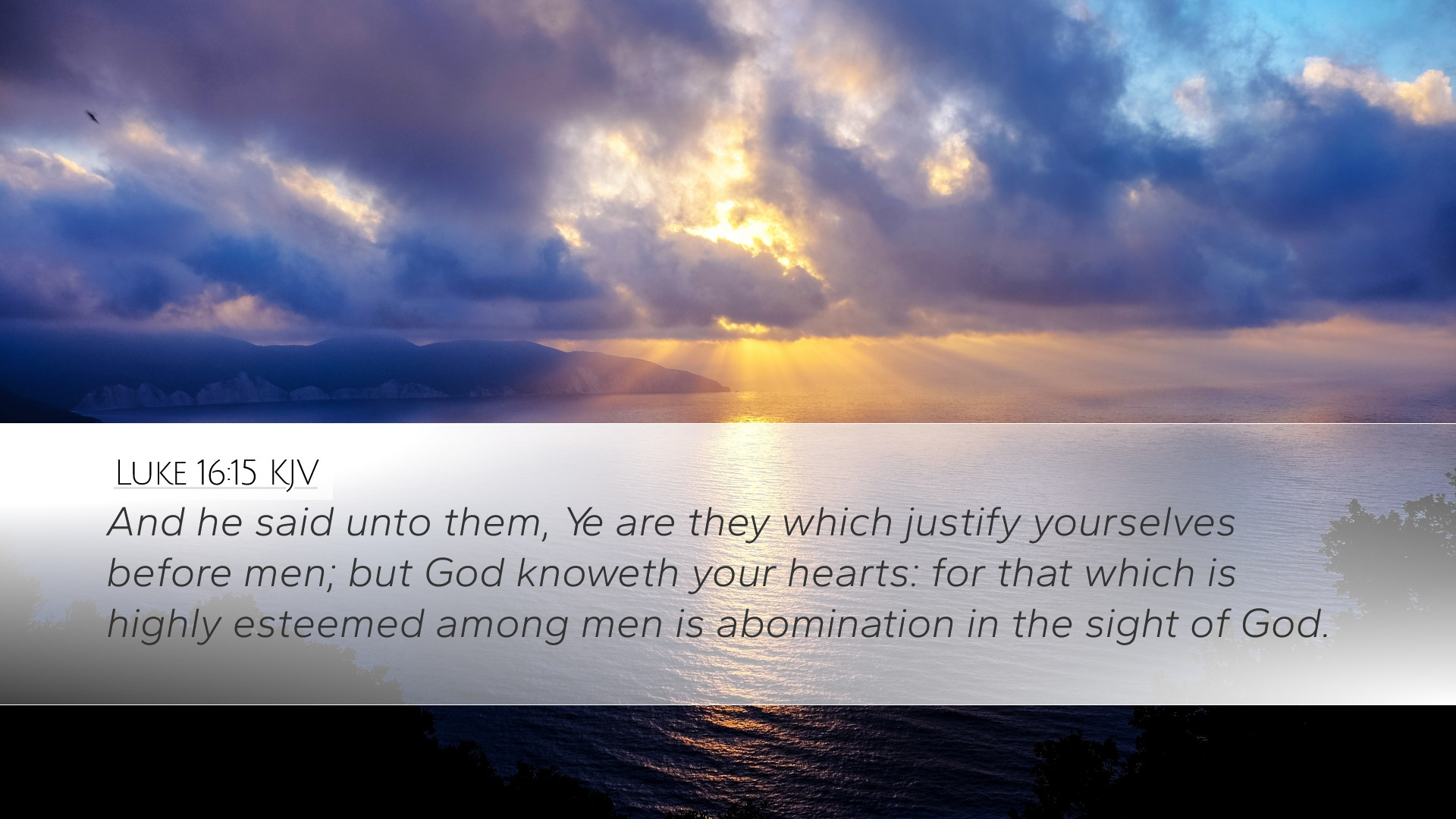Commentary on Luke 16:15
Verse: "And he said unto them, Ye are they which justify yourselves before men; but God knoweth your hearts: for that which is highly esteemed among men is abomination in the sight of God." (KJV)
Introduction
This verse is part of a broader discourse in which Jesus teaches about the nature of righteousness and the values esteemed by God compared to those valued in human society. As seen in the parallel accounts in Matthew and Mark, the focus is on the contrasting values of human ethics versus divine morality.
Exegetical Insights
Contextual Background: In Luke 16, Jesus addresses the Pharisees, who were not only religious leaders but also wealthy individuals. Their justification in the eyes of men often contradicted divine principles. The verse powerfully critiques the disparity between human perception and divine judgment.
- Matthew Henry: Henry emphasizes that the Pharisees sought to maintain a facade of righteousness before others while their inner lives were far from pure. He comments on the dangers of prioritizing human approval over God's judgment.
- Albert Barnes: Barnes elaborates on the idea of self-justification, noting that the more one tries to appear righteous before others, the more they may stray from divine truth. He highlights that God sees beyond external actions to the heart’s true intentions.
- Adam Clarke: Clarke points out that the Greek word used for "abomination" indicates something detestable to God. He emphasizes that the values esteemed by society can often lead one away from piety and towards moral decay.
Theological Implications
This verse poses significant theological questions about the nature of righteousness and the integrity of one's heart. Let us explore some key implications:
- Human vs. Divine Standards: The conflict between societal values and divine expectation is profound. What humanity deems valuable—such as wealth, status, and popularity—can often be the very things God repudiates.
- The Condition of the Heart: The emphasis on God's knowledge of the heart invites deeper reflection on the true condition of one’s spiritual life. This underlines the importance of inner purity over outward appearances.
Application for Pastors and Theologians
This verse serves as a cautionary note to pastors and theologians about the dangers of ecclesiastical hypocrisy. When the church seeks to gain approval from the world, it risks compromising its integrity and mission.
- Preaching Authenticity: Pastors are encouraged to preach messages that focus on genuine transformation instead of mere adherence to cultural norms. Authenticity in leadership is essential to foster true discipleship among congregants.
- Encouraging Vulnerability: Encouraging congregants to reflect on their inner lives can cultivate an environment where true repentance and spiritual growth occur, rather than superficial performances for approval.
Conclusion
Luke 16:15 serves as a sobering reminder of the dichotomy between human judgment and divine insight. As we reflect upon this verse, let us strive to align our values with those of the Kingdom of God, ensuring that our hearts—and not merely our outward appearances—are devoted to Him. In a culture that often glorifies the superficial, may we cling to a faith that seeks God's approval above all else.


